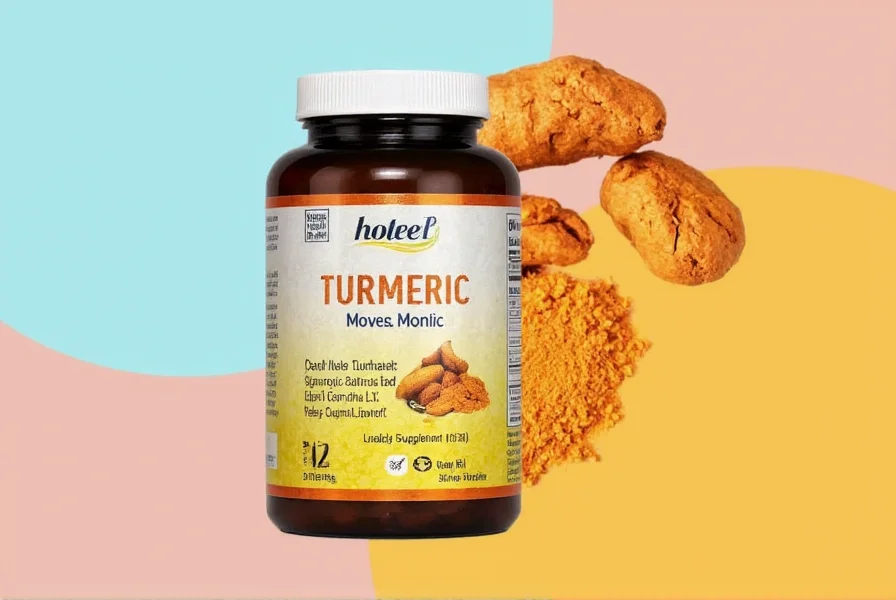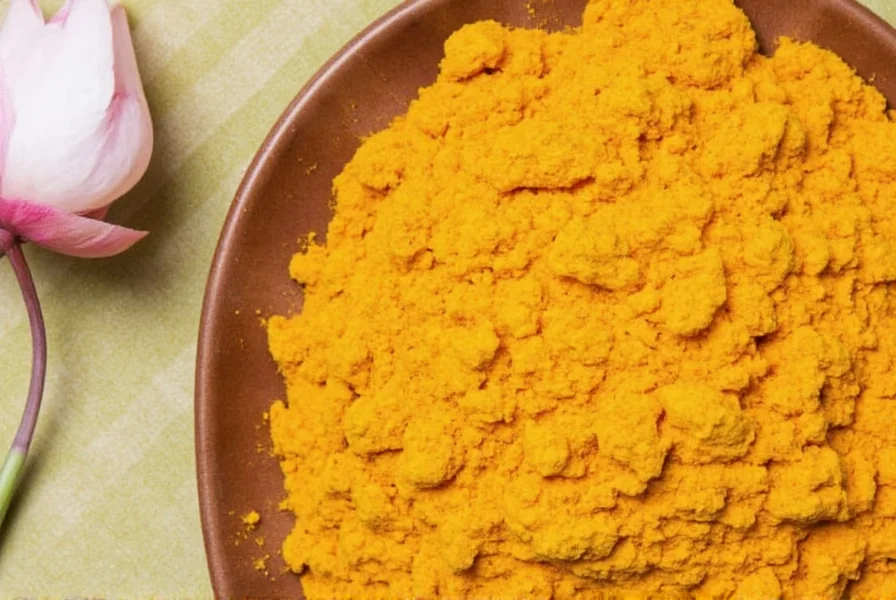When searching for high-quality turmeric supplements, understanding the science behind effective formulations is crucial. Turmeric's primary active compound, curcumin, has documented anti-inflammatory and antioxidant properties, but its poor bioavailability presents a significant challenge. Research shows that without proper formulation, most curcumin passes through the digestive system unabsorbed. The most effective supplements address this through specific delivery systems and standardized extracts that ensure consistent potency.
Understanding Turmeric's Active Components
Curcuminoids represent the bioactive compounds in turmeric responsible for its health benefits, with curcumin being the most studied. High-quality supplements specify the exact percentage of curcuminoids, typically ranging from 75-95%. Products listing "turmeric root powder" without standardization often contain less than 5% curcumin, making them ineffective for therapeutic benefits. Scientific studies demonstrating turmeric's benefits generally use formulations with 500-1500mg of standardized curcumin extract (95% curcuminoids) daily.
Critical Quality Indicators for Turmeric Supplements
Not all turmeric supplements deliver equal benefits. The following factors determine whether a product qualifies as one of the best turmeric supplements for inflammation and other health concerns:
| Quality Factor | Minimum Standard | Why It Matters |
|---|---|---|
| Curcuminoid Concentration | 90-95% standardized extract | Ensures therapeutic dosage in reasonable serving size |
| Bioavailability Enhancer | Piperine, phospholipids, or nanoparticle delivery | Increases absorption by 20-2000x compared to plain curcumin |
| Third-Party Testing | Certificates of Analysis from independent labs | Verifies label accuracy and checks for contaminants |
| Ingredient Transparency | Full disclosure of all components | Prevents hidden fillers and potential allergens |
Comparing Turmeric Supplement Formulations
The market offers several approaches to improving curcumin absorption. Understanding these differences helps identify the best turmeric supplements for specific health goals:
- Piperine-enhanced formulas: Black pepper extract (piperine) increases absorption by up to 2000% according to research published in Planta Medica. This remains the most cost-effective approach for turmeric curcumin with black pepper formulations.
- Liposomal and phospholipid complexes: These surround curcumin molecules with fat-soluble carriers that improve intestinal absorption. Studies show these formulations achieve blood concentrations 29 times higher than standard extracts.
- Nanoparticle technology: Breaks curcumin into microscopic particles for enhanced solubility. While effective, these formulations often come at a premium price point.
- Cyclodextrin complexes: Uses sugar molecules to encapsulate curcumin, improving water solubility without adding black pepper or fats.
For those seeking the best turmeric supplements for joint health, formulations combining curcumin with boswellia or ginger may provide synergistic benefits. However, always verify that these additional ingredients are included at clinically effective doses.

Safety and Dosage Guidelines
While turmeric is generally safe, proper dosage matters. Most clinical trials use 500-2,000mg of standardized curcumin extract daily. Higher doses may cause gastrointestinal discomfort in sensitive individuals. People taking blood thinners, diabetes medications, or with gallbladder issues should consult healthcare providers before starting supplementation.
When evaluating turmeric supplement dosage guidelines, remember that:
- Dosage refers to the curcumin extract, not whole turmeric powder
- Split doses throughout the day improve absorption
- Taking supplements with healthy fats enhances bioavailability
- Consistent daily use for 4-8 weeks yields best results
Evaluating Supplement Labels Like an Expert
Reading supplement labels requires attention to detail. The best turmeric supplements clearly state:
- Exact curcuminoid percentage ("standardized to 95% curcuminoids")
- Amount per serving (e.g., "500mg Curcuma longa extract")
- Full ingredient list with quantities
- Third-party testing verification
- Manufacturing standards (GMP certified)
Beware of marketing terms like "high potency" or "maximum strength" without specific numerical values. Products listing "proprietary blends" often hide the actual curcumin content. The most transparent brands provide Certificates of Analysis accessible via QR codes or website links—essential for verifying third-party tested turmeric supplements.
Making an Informed Selection
Selecting quality turmeric supplements requires matching product characteristics to your specific needs. For general wellness, a standard curcumin-piperine formula may suffice. Those with inflammatory conditions might benefit from higher-potency, enhanced-absorption formulations. Always prioritize products with transparent labeling and verifiable testing over those making extraordinary health claims.
When researching how to choose quality turmeric supplements, consider these practical steps:
- Verify the curcuminoid concentration (aim for 90%+)
- Check for a proven bioavailability method
- Confirm third-party testing documentation
- Review the full ingredient list for unnecessary additives
- Research the manufacturer's reputation and transparency
Frequently Asked Questions
How much curcumin should a quality turmeric supplement contain?
Effective turmeric supplements contain 500-1,000mg of standardized curcumin extract (95% curcuminoids) per serving. Whole turmeric powder typically contains only 2-5% curcumin, making standardized extracts necessary for therapeutic benefits. Look for products specifying the exact curcuminoid percentage rather than total turmeric content.
Why is black pepper added to many turmeric supplements?
Black pepper contains piperine, which inhibits certain digestive enzymes and increases curcumin absorption by up to 2000%. Research published in Planta Medica demonstrates this significant bioavailability enhancement. However, some people prefer alternative absorption methods due to potential medication interactions with piperine.
How can I verify if a turmeric supplement is third-party tested?
Reputable brands provide Certificates of Analysis (COAs) from independent laboratories like NSF, USP, or ConsumerLab. Check the product label for testing verification, visit the manufacturer's website, or look for QR codes linking to current test results. Avoid products that mention 'tested' without providing accessible documentation.
What's the difference between turmeric and curcumin supplements?
Turmeric refers to the whole root or powder, containing only 2-5% curcumin. Curcumin supplements use standardized extracts with 90-95% curcuminoids, providing significantly higher concentrations of the active compounds. For therapeutic benefits, curcumin extracts are necessary as the low concentration in whole turmeric makes achieving effective doses impractical.
How long does it take for turmeric supplements to work?
Most research shows benefits becoming noticeable after 4-8 weeks of consistent daily use. Inflammation markers typically improve within 4-6 weeks, while joint pain relief may take 6-8 weeks. Individual results vary based on formulation, dosage, and health condition. Taking supplements with meals containing healthy fats can enhance absorption and potentially shorten this timeframe.











 浙公网安备
33010002000092号
浙公网安备
33010002000092号 浙B2-20120091-4
浙B2-20120091-4